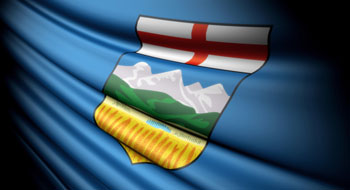

An independent review panel has provided the Alberta government with a report that includes 60 recommendations to restructure the province’s Workers’ Compensation Board and its processes.
The panel spent nearly two years compiling its review of the board. It examined previous reviews and spoke with employers, injured workers, unions, employee advocates and safety organizations.
“It was a very deep dive across the board,” says Mia Norrie, chair of the panel and a human resources and labour relations consultant in Alberta. “The general consensus was that there’s a decided lack of confidence in the WCB, and trust, so issues of transparency, good governance and communication were really lacking.
Read: Alberta proposes family-friendly workplace legislation
“Workers expressed to us, and employers even shared their frustrations, that decisions were not being made in a timely fashion or that they were not being made in what seemed like a fair way,” adds Norrie.
The panel has recommended what it calls a more “worker-centred” process, in which the board clearly communicates its services and workers get the benefit of the doubt. “The WCB in Alberta was well-renowned for how efficiently it handled claims, but somewhere in that mix, the human element was lost,” says Norrie.
One recommendation is the establishment of an obligation to return employees to work and a corollary duty to co-operate by workers. “The result is a return-to-work approach that respects pre-existing relationships between workers and employers and the realistic re-engagement of workers with the labour force,” stated the report.
Another recommendation is the establishment of a new office of the appeals advisor that will provide employers and employees with access to the same types of assistance.
Read: Alberta eliminates bonuses, caps pay for public sector execs
A way to ensure fair treatment of workers in the workplace is through the duty to accommodate, says Norrie, noting smaller employers don’t always understand their legal obligations to continue to employ disabled or injured employees. “They may not be getting good advice on what that looks like,” she says. “We saw that the small employers needed the support. Large employers don’t. They have the sophisticated tools, the understanding of the law.”
Larger employers, however, have already expressed their own concerns. They’re unhappy about the panel’s suggestion on what to do with the surplus income from the Workers’ Compensation Board’s accident fund.
Read: WSIB, Ontario sued over treatment of chronic mental stress claims
“In the past, the WCB had paid back those rebates to employers,” says Norrie. But the panel recommended reinvesting the surplus in the board and using it to create and support programs. “It should be going back into the system — improving health and safety, injury prevention, greater support in a broader way for workers and employers,” says Norrie.
Although Norrie admits the review process was a “hard slog,” she does “believe that the recommendations will cause a fundamental shift in the culture of the WCB. That was our objective, to create something that is more fair and transparent for everyone.”
The government has indicated it will reply to the report by the fall, according to Norrie.
